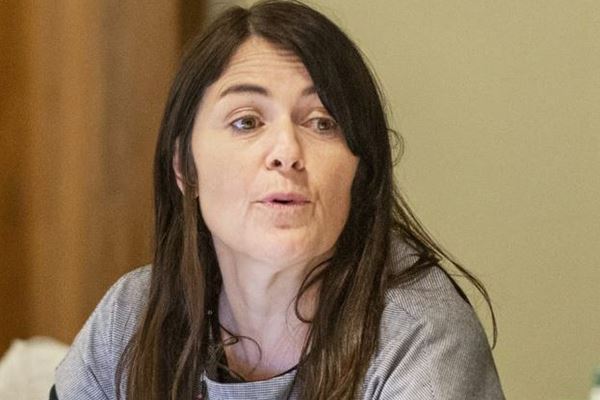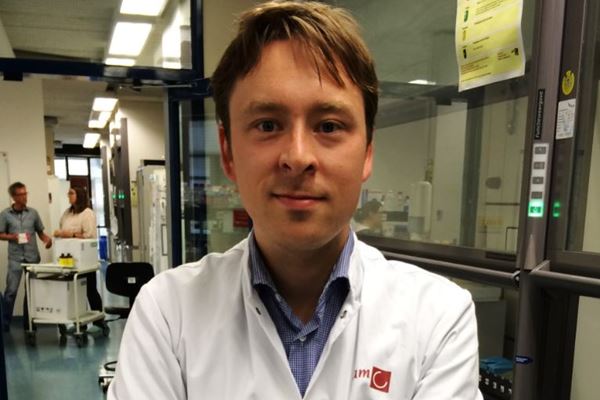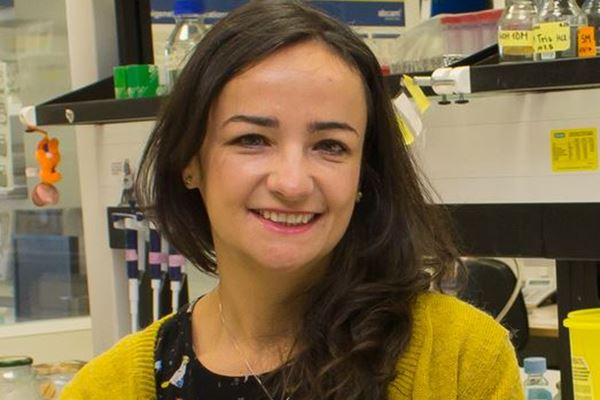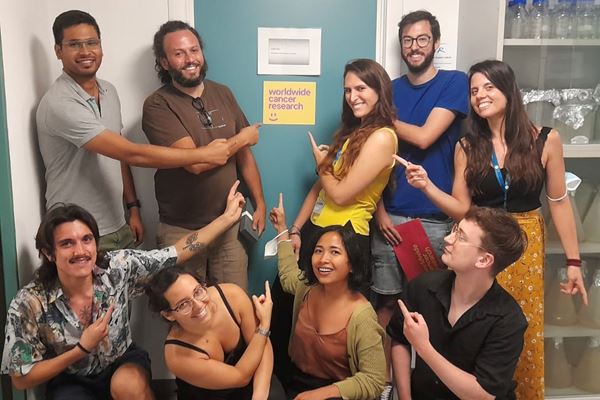Four incredible examples of bowel cancer research made possible by our Curestarters
26th April 2023
Thanks to research, survival rates for bowel cancer are improving, but at the same time case numbers are increasing around the world. This means it’s more important than ever to uncover new ways to prevent, diagnose, and treat it.
Here are two bowel cancer research projects making a difference today, and two with potential for the future - thanks to the generosity of our Curestarters, we can make a difference to the lives of those with bowel cancer.
Clinical trials to stop bowel cancer coming back
In 2005, Professor Awen Gallimore asked for our help to study how the immune system reacts to cancer. Her project, funded by Worldwide Cancer Research, revealed that tumours can increase the number of the problematic white blood cells, and hijack those cells to stay hidden from the immune system.
This important breakthrough paved the way for a clinical trial to test a drug that could prevent bowel cancer coming back after surgery - the researchers hope it will reactivate the patient’s immune system to destroy any cells remaining in the body after treatment.

Preventing bowel cancer with the psychiatric drug lithium
Professor Louis Vermeulen came to us with a brilliant idea to help stop bowel cancer in its tracks: What if we could find a way to boost the natural defence mechanisms of healthy cells in the gut and help them keep the mutant cells under control?
Thanks to our Curestarters, Professor Vermeulen’s work revealed how mutant stem cells in the gut win the upper hand against healthy cells and form tumours. Today, a clinical trial aims to test how lithium could hold the key to the puzzle.
Read how Professor Vermeulen’s discovery led to new hope for patients

Become a Curestarter and help fund ground-breaking cancer research
Identifying new therapeutic approaches for treatment-resistant bowel cancer
Normal cells self-destruct when put under enormous stress, but some cancer cells lose this ability. Re-establishing this ability to self-destruct in cancer cells could be a way to stop cancer from growing.
Dr Maite Huarte, one of our researchers in Spain, wants to study the role a molecule called ‘long non-coding RNA’ play in stressed cells to better understand the behaviour of cancer cells. She hopes this will uncover new ways to target bowel cancer.
Learn more about how Dr Huarte hopes to make a difference to bowel cancer patients
Targeting the gut microbiome to make immunotherapies more effective
Immunotherapies, which harness the power of the immune system against cancer, can be highly effective for some patients with bowel tumours, however most patients do not respond - we can’t currently predict who will or won’t respond either.
Dr Luigi Nezi in Italy believes that some bacteria in the gut that contribute to certain fats could be part of the problem. He and his team are now studying the microbiome of bowel cancer patients in more detail, including how it interacts with different types of immune cells. They are also testing whether targeting the microbiome could make immunotherapies more effective at treating bowel tumours.
Learn how studying the gut microbiome could lead to real help for bowel cancer patients
You can help make a difference to the lives of those with bowel cancer by supporting brilliant ideas for new cancer cures like these – without it, it won’t be possible to discover new ways to prevent, diagnose, and treat bowel cancer.




